You can’t own a dog without also dealing with poop. But what happens if your dog stops pooping? Constipation can be quite uncomfortable and frustrating, but it can also become an emergency if it goes on for too long.
Treating constipation is important, but it’s also essential to know how it happened in the first place. Hydration, diet, and exercise levels can lead to constipation. Once you know what caused it, you will know how to prevent or reduce the occurrence in the future.

Top 15 Reasons Why My Dog Won’t Poop
1. Too Much Fiber
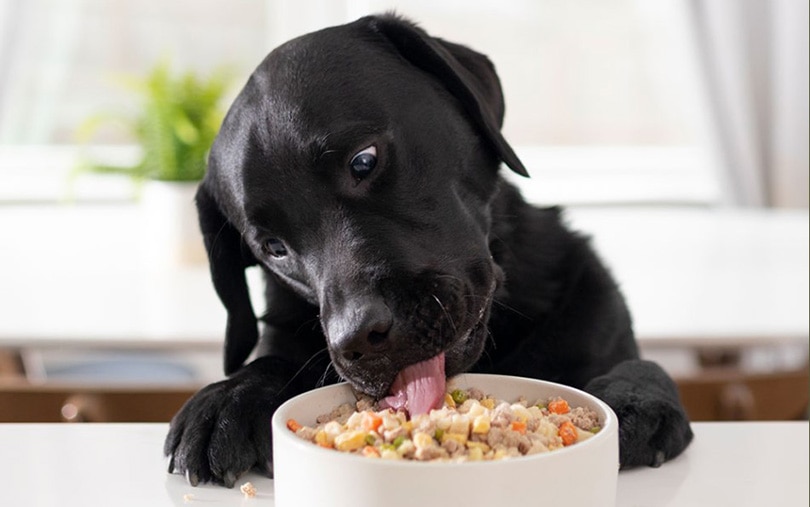
This is exactly how it sounds. If a dog eats too much fiber, it can cause constipation. This can occur from eating low-quality dog food and being fed table scraps too often.
2. Not Enough Fiber
Constipation can also occur when dogs aren’t given enough fiber. This can be caused by a diet of low-quality dog food that is too low in fiber. This showcases why feeding your dog high-quality food is essential, as it’s a delicate balance.
3. Swallowed Foreign Material
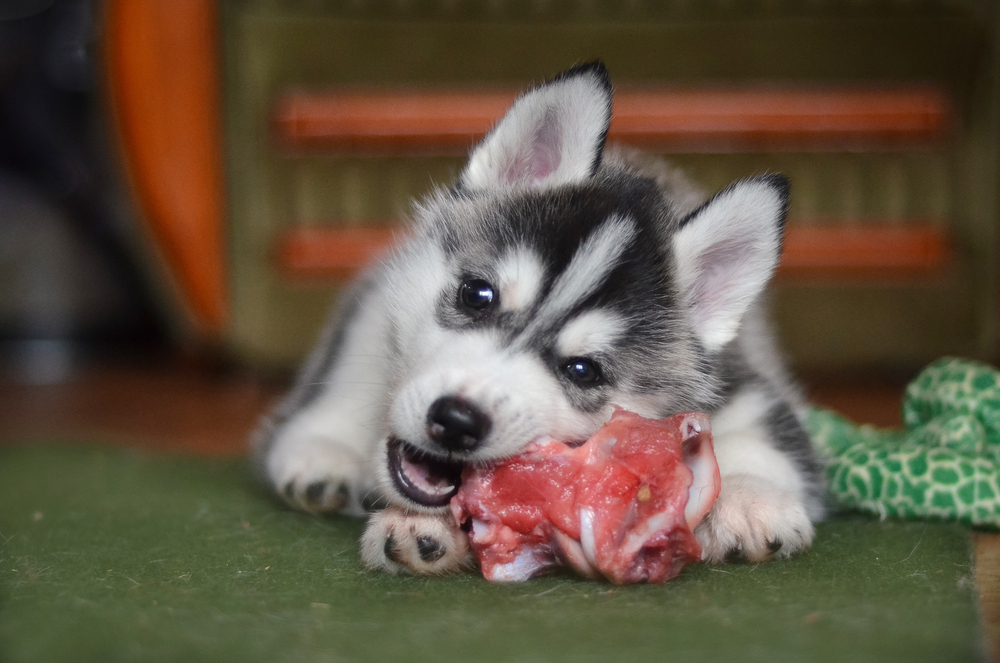
Sometimes, dogs eat things that they shouldn’t. Indigestible materials such as bones, hair, sticks, rocks, and dirt can all lead to obstructing your dog’s poop. This can also occur if your dog eats a toy. Sometimes, surgery is necessary to remove the foreign object.
4. Change in Diet
If you’ve changed your dog’s food too rapidly or they’ve eaten something new, this can affect your dog’s poop. When you want to introduce new food to your dog, it needs to be done gradually by adding a small amount of new food to the old every day. The new food is slowly increased until the old food is completely phased out.
5. Not Enough Water
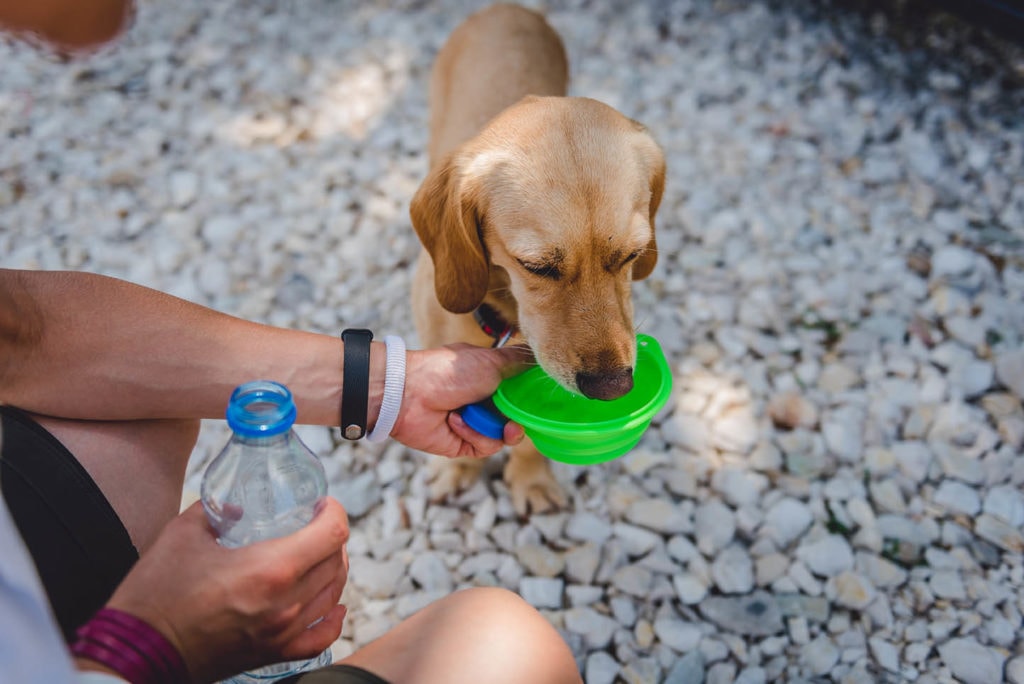
Not enough water in your dog’s system can lead to drier poop, which will be harder to pass. Always ensure that your pup has constant access to clean and fresh water. The water bowl should always be cleaned and filled with fresh water every day. It should be located where your dog can always get to it.
6. Not Enough Exercise
A lack of exercise can cause your dog’s system to slow down, leading to irregular bowel movements. Playtime and regular walks can help stimulate the colon, keeping constipation away.
7. Change in Routine
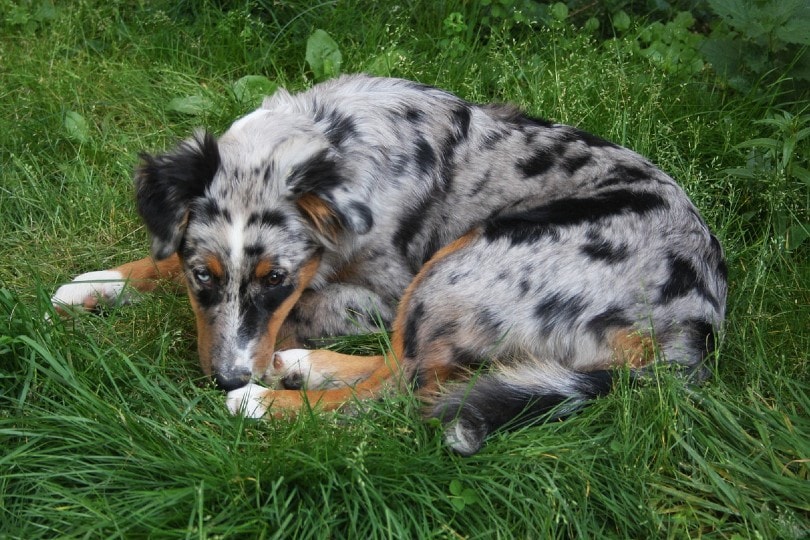
Dogs are highly sensitive to change, and if their usual routine has changed recently, this can lead to irregular bowel movements. Try to go back to the previous routine, and if this isn’t possible, establish a new routine with a consistent walk and meal schedule.
8. Stress and Fear
Fear, anxiety, and stress can occur when your dog starts to associate negative things with their regular bathroom break. For example, some dogs might develop a fear of grass or rain and thus avoid pooping outside. You’ll need to consider desensitization training and speak to your vet for help in this area.
9. Neurological Disorder
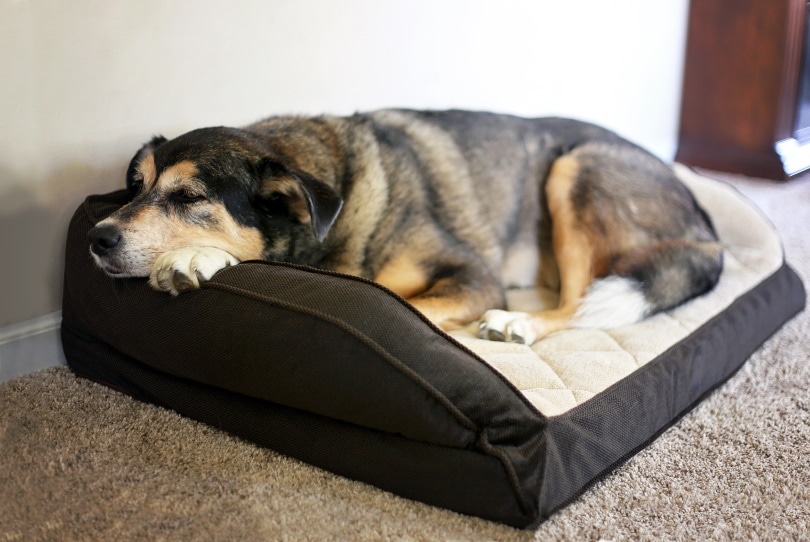
Dogs with drooping tails or pain and weakness in their hindquarters might suffer from a neurological disorder. They might find eliminating difficult or painful, so you should seek your vet’s help immediately.
10. Medication
Some medications can cause constipation. Diuretics, antihistamines, sucralfate, and narcotic pain relievers are all known to potentially cause this issue.
11. Behavioral Issue
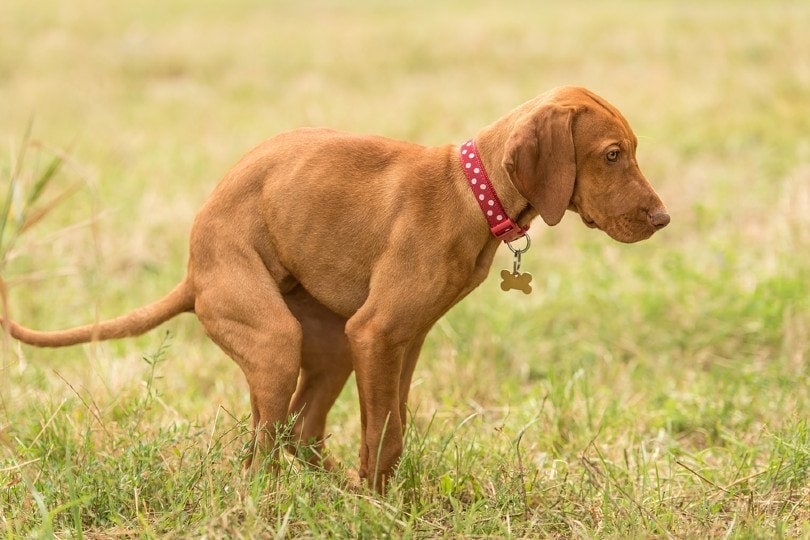
Sometimes, constipation can result if a dog just holds their poop in for too long. For example, dogs may want to prolong their time outside because their usual spot has changed somehow. They may not go even when they feel the urge to. Try to keep your pup on a regular routine and location, or try a new location if the old one has developed distractions or stressors.
12. Physical Pain and Lack of Access
Anything that can cause your dog pain while trying to poop can lead to them avoiding it altogether. This can lead to constipation. Conditions like arthritis or a pelvic injury that makes squatting difficult or painful can make your dog unwilling to defecate.
13. Conditions Affecting the Colon
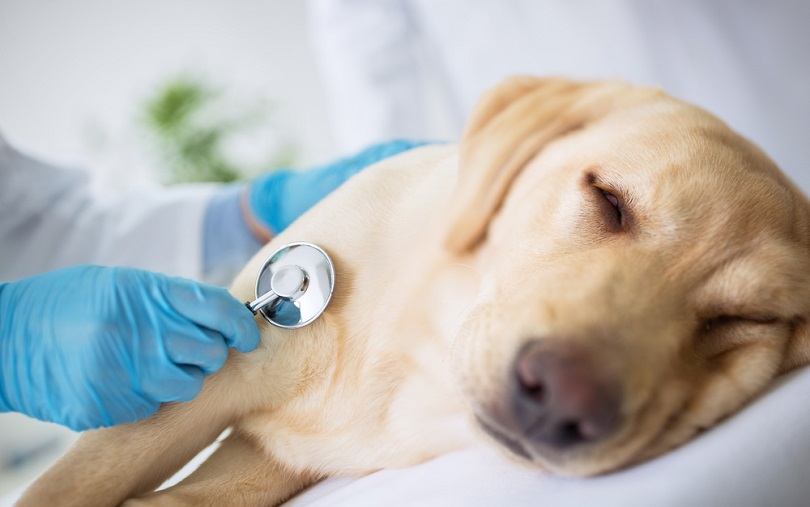
Certain diseases can affect the colon, which can lead to bowel irregularities. Specifically, a megacolon, which is an enlarged colon, can lead to severe constipation. Signs can also be hard and dry poop, weight loss, ragged coat, occasional vomiting, and dehydration.
14. Tumors
Tumors or some kind of mass inside or next to the rectum can block the feces and develop into an obstruction. These usually need to be removed through surgery.
15. Hormonal Diseases

Certain hormonal diseases can also lead to constipation such as hyperparathyroidism and hyperthyroidism. The underlying issues must be treated to also treat the constipation.

Signs of Constipation
You need to be sure that your dog is experiencing constipation and not another issue like urinary tract disease, which can sometimes seem like constipation.
- Straining to poop with little to no success
- Hard and dry feces
- Small amount of liquid poop with mucus and sometimes blood (after straining to poop for a while)
- Loss of appetite
- Occasional vomiting
- Depression
- Swelling of the rectum
- Vocalizing and obvious signs of pain while pooping
Most dogs poop at least once a day, but when your dog has gone over 48 hours without defecating, you should call your vet. Typically, constipation isn’t too serious, and you can treat it at home, but there could be a more severe underlying health issue.
For this reason, it’s usually best to talk to a vet just to ensure there isn’t anything seriously wrong with them and to find out the best treatment options.
If you need to speak with a vet but can't get to one, head over to PangoVet. It's our online service where you can talk to a vet online and get the advice you need for your pet — all at an affordable price!
Treating Constipation
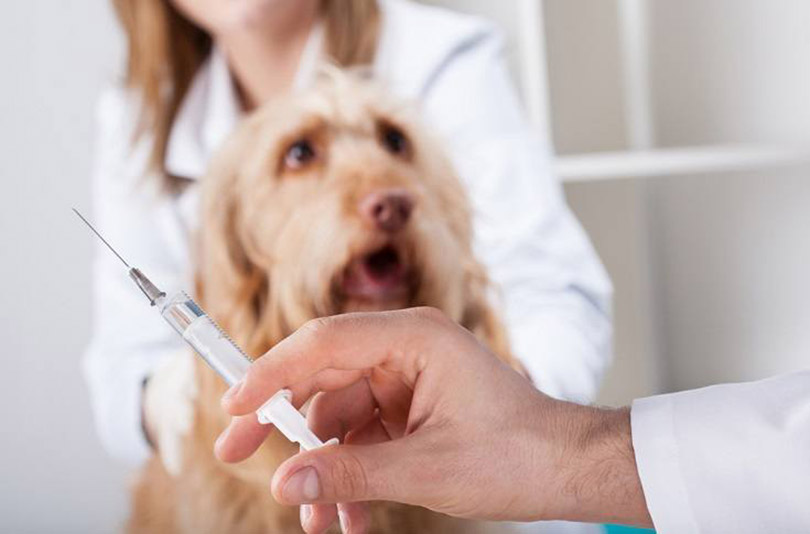
Treatment will entirely depend on what’s causing the constipation. If it’s stemming from another health issue, your veterinarian will start by treating that condition and then the constipation.
Pumpkin
If it’s a dietary or less serious issue, a common treatment is giving your dog canned pumpkin. Pumpkin is high in fiber and safe for dogs—as long as it’s only pumpkin, with no other added ingredients like sugar or spices.
You can typically find it in the baking aisle of your local grocery store. Mix a portion into your dog’s food, or even give it to your pup directly off a spoon.
Be sure you have your veterinarian’s approval before doing any treatment. The last thing that you want to do is give your dog anything high fiber when too much fiber is what’s causing their constipation in the first place!
Stool Softener
You’ll need to speak to your vet before doing a treatment like this one, but some dogs can take human stool softeners. This needs to be addressed by your veterinarian because they might prescribe one for you or tell you that it’s okay to use one that you can pick up in the drug store.
Prescription Dog Food
Several prescription dog foods address constipation through high-fiber ingredients. This can be helpful, particularly if your dog seems prone to the condition. You will need a prescription from your vet for this kind of food, though, and it can be a little pricey.
Enema
This treatment is only done by veterinarians because it can be dangerous, even fatal, for your dog if you try it yourself. Enemas are only done if nothing else has worked or if the constipation is severe.

Summing Up
If you’re in doubt or if the constipation seems serious, don’t hesitate to bring your dog to the vet! Constipation itself can be problematic, but it could be caused by an even more dangerous health condition.
You know your dog best, so it won’t take you long to figure out when something’s wrong. In general, a healthy and high-quality diet, plenty of exercise, and annual visits to your vet should all help keep constipation away.
Featured Image Credit: Pezibear, Pixabay
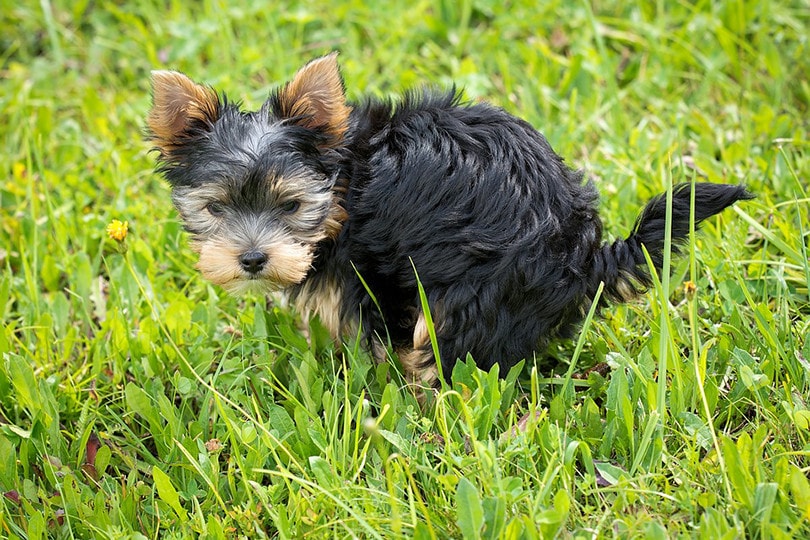


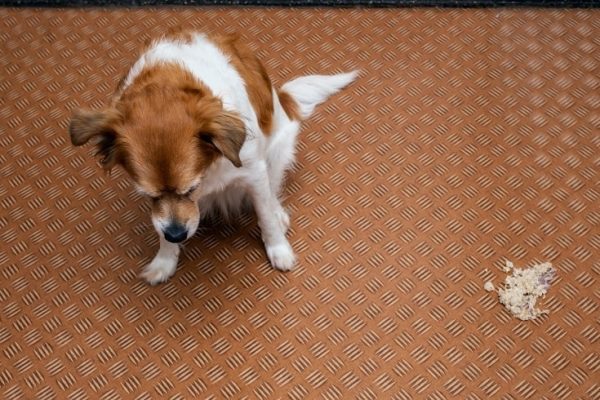
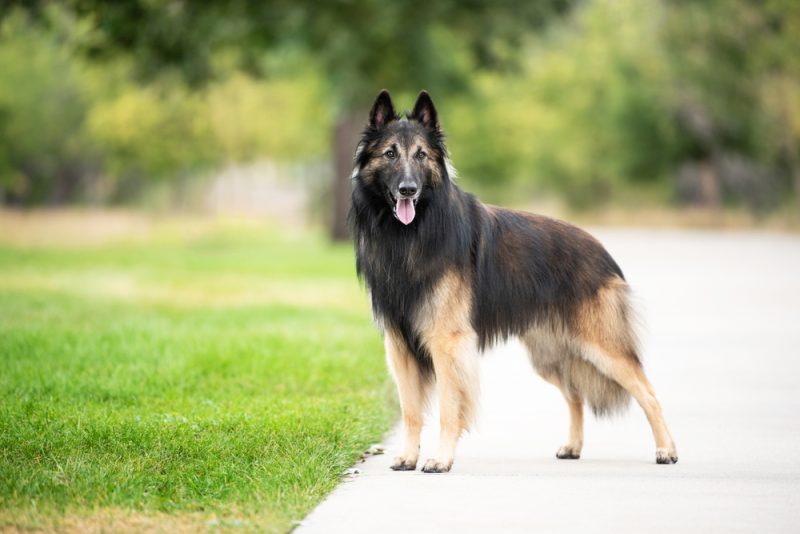

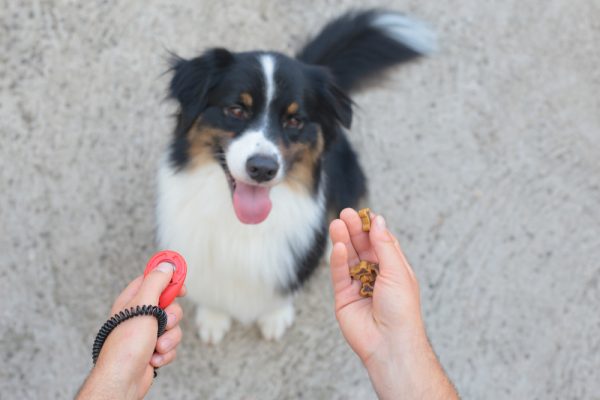
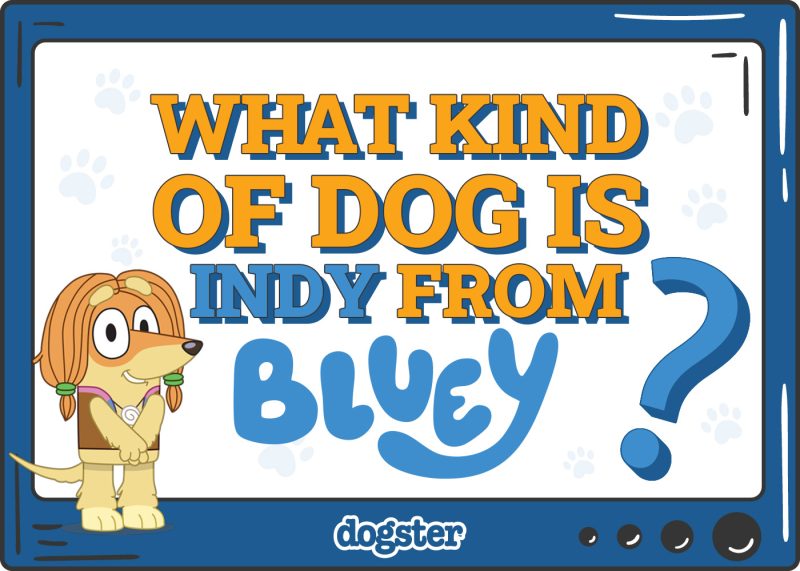
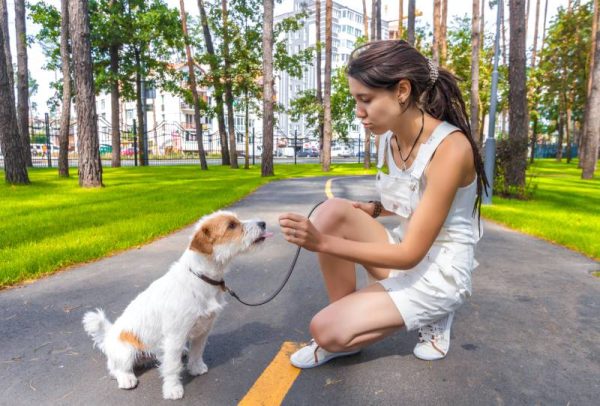
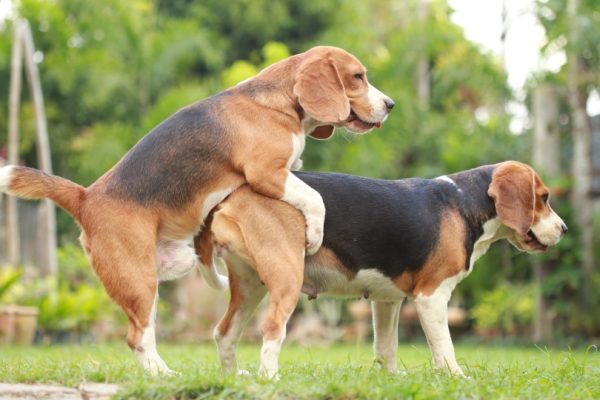
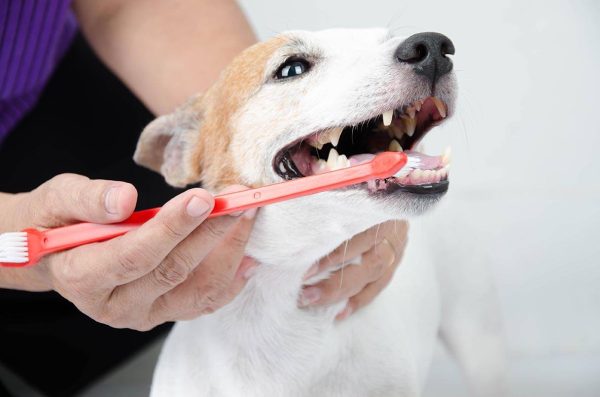

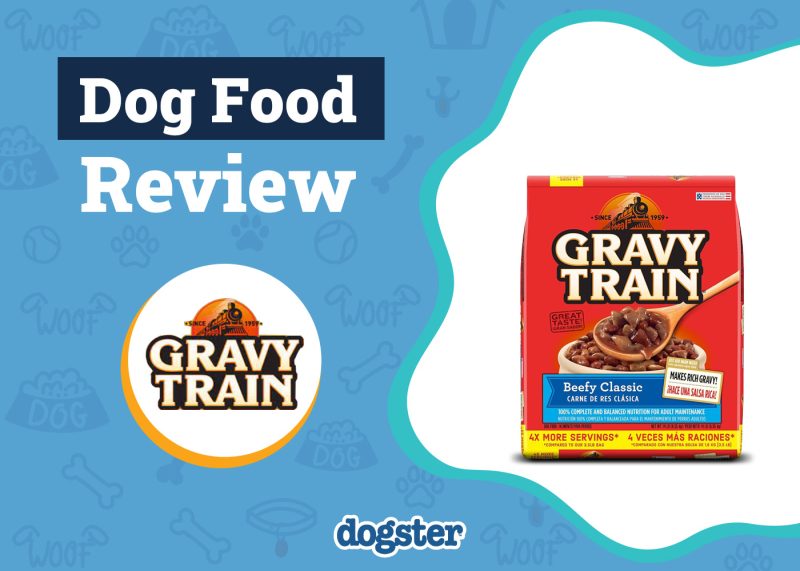

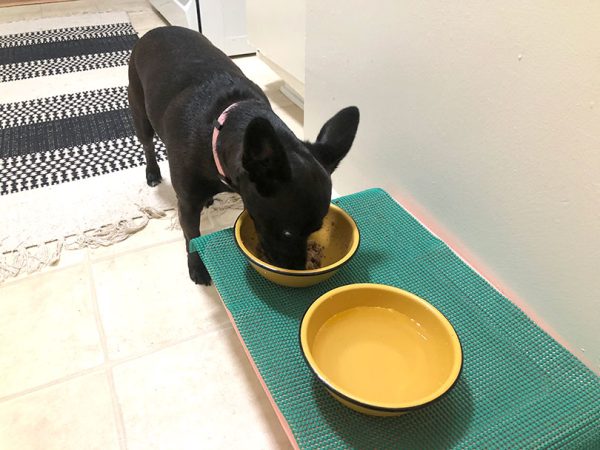

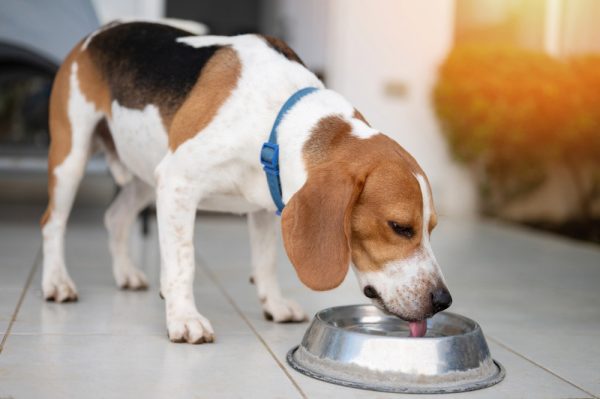

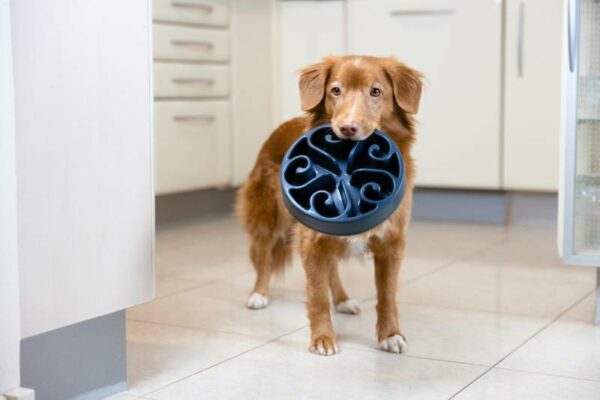

4 Responses
is there something else to give my pet to help her poop? she doesn't like pumpkin or rice.
Hello Suzanne,
Thank you for reaching out. I understand that it can be concerning when your dog isn't feeling well. Unfortunately, Since every dog's nutritional needs and health conditions are different, we cannot offer specific dietary recommendations or advice. The best course of action is always to consult a professional veterinarian who can properly assess your dog's situation and suggest a solution tailored to their specific needs.
Alternatively, you could book a 20-minute video-call appointment with one of the veterinarians from our telehealth service at PangoVet.com. They can provide a professional opinion and helpful suggestions and the consultation from the comfort of your home.
We hope your pet feels better soon!
cleo has not pooped in 2 days.
I takeher for many walks, but nothing. she is peeing ok.
I feed her hills science diet.
everyone will be closed tomorrow.
she is a happy 3 yr old boxer mix, but has cut down on the kibble.p
Hello Bonnie,
thank you for your question and sorry for a bit of a delay. We honestly hope that Cleo is alright by now and that it wasn't anything serious.
Next time, if you would be experiencing a situation when you would appreciate a veterinarian consultation, please don't hesitate to book a video-call appointment with one of our professional veterinarians at www.PangoVet.com. They will be happy to advice you on the next steps to help your Cleo.